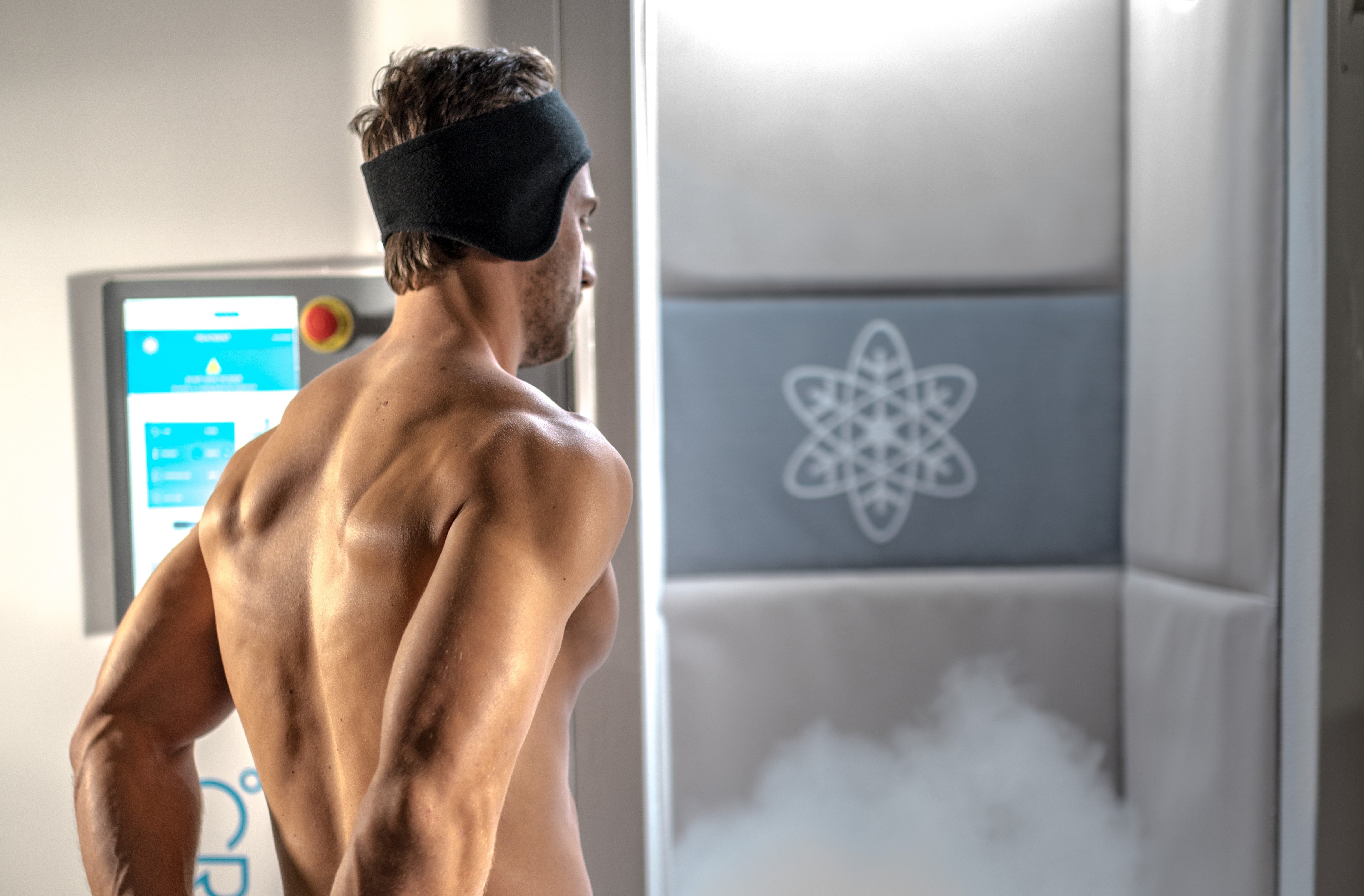Every model is crying Yes” for Whole Body Cryotherapy – feat Oli Benz”
What is Whole Body CRYOtherapy exactly? While most in the fashion industry are obsessed with the latest trends, there is a new health treatment now available in the United States (and abroad for that matter) that is gaining the attention of today’s fashion industry. The simple answer is that Whole Body CRYOtherapy is a 3 minute session where your body is exposed to vaporised liquid nitrogen that will run all over the surface of your skin. The body will initiate a physiological response that you are freezing and begin to draw blood into your core, causing the blood to draw from your extremities, which causes your body to pump additional oxygen and nutrients into your blood. At the end of the session, the body will circulate freshly oxygenated blood throughout the rest of your body.
What Makes CRYOtherapy so Effective
The beauty and health industry are always claiming they’ve found the next big thing; a miracle cream, an age defying treatment, or a revolutionary product. It’s easy to brush off most of these claims as exaggerations because of the frequency with which they’re made. Given this pattern, we’ve realized that many of the assertions being made by CRYO could be being questioned as well. After all, if you haven’t tried the treatment it’s difficult to gauge how effective the results actually are. There’s one key factor that sets CRYOtherapy apart from other treatments and it’s the fact that it’s entirely natural. Bodies have a tendency to react in different ways to different chemically formulated products but natural, organic methods leave very little room for variation.
°CRYO introduces ELEMIS BIOTEC Facial Treatments
°CRYO announces the launch of ELEMIS BIOTEC facial treatments at °CRYO clinics in Emirates Towers and Abu Dhabi Country Club. Elemis is an award-winning luxury British skincare brand. The °CRYO team is specially trained in these revolutionary, non-invasive, anti-ageing treatments brought to you by the much-loved British skincare brand Elemis.
Cryotherapy: The New Craze Taking Celebrities by Storm
Thought cryotherapy was just for athletes? Think again. Celebrities love cryotherapy and it’s not because they’re working out. Cryotherapy is so beneficial for wellbeing that celebrities have been flocking to their nearest cryotherapy facilities to try out the treatment for themselves. Kate Moss, Jessica Alba, Demi Moore, Jennifer Aniston are just a few of the many celebrities who use cryotherapy on a regular basis. Celebrities are always looking for the next best thing when it comes to health and beauty so naturally they love the most innovative treatment to take the beauty industry by storm: cryotherapy. While cryotherapy has innumerable health benefits it’s beauty benefits are just as vast as well.
Local cryotherapy acute soft tissue injury care management, let’s call the POLICE
“Somebody get ICE!” an often used reflex when somebody just sprained his ankle or felt on his wrist. The use of ice or cryotherapy in acute soft tissue injury is a well-known strategy to cope with the first problems of swelling and pain, despite a paucity of scientific data that support this strategy. Throughout the years it became evident that cryotherapy should not be an act on its own but needs to be part of an integral approach.
How to Get Rid of Cellulite Naturally
Cellulite is a collection of subdermal fat stores that gives skin that signature ‘orange peel’ texture. Although it’s completely normal (even supermodels get it!) and is in no way harmful to your health, many women wish they didn’t have it. There are several ways you can reduce its appearance and not all of them are expensive surgical solutions. Here’s how to get rid of cellulite naturally.
Which to Choose: Localized or Whole-Body Cryotherapy?
 Cryotherapy is associated with low temperatures and extracting energy. Two typical applications are localized cryotherapy and whole-body cryotherapy, two different modalities with noticeable different effects…. which to choose and when?
Cryotherapy is associated with low temperatures and extracting energy. Two typical applications are localized cryotherapy and whole-body cryotherapy, two different modalities with noticeable different effects…. which to choose and when?
Cryotherapy and Inflammation, Where is the Benefit and its Applications?
We probably all know the feeling, it hurts when you touch it, it feels swollen and warm, it looks red and you can actually feel your heart beat; the cardinal signs of an inflammatory response. This type of response might occur when you just sprained your ankle or recently had a surgery to your shoulder. When you think about it, you probably put ice on it or tried to cool it down in another way. It is commonly accepted that cryotherapy has an anti-inflammatory effect after soft tissue injury but why and how does it work?
True Whole Body Cryotherapy the right way – Head In or Head Out?
In our previous blog, we made a differentiation between a whole body cryotherapy chamber and a cryosauna and answered the question what is the safest and best technology to reach my goals? It became evident that the directed effects between the two technologies are different. In this blog we look into one of the reasons why the results are mixed; should we expose the head and neck as well to the cold?

